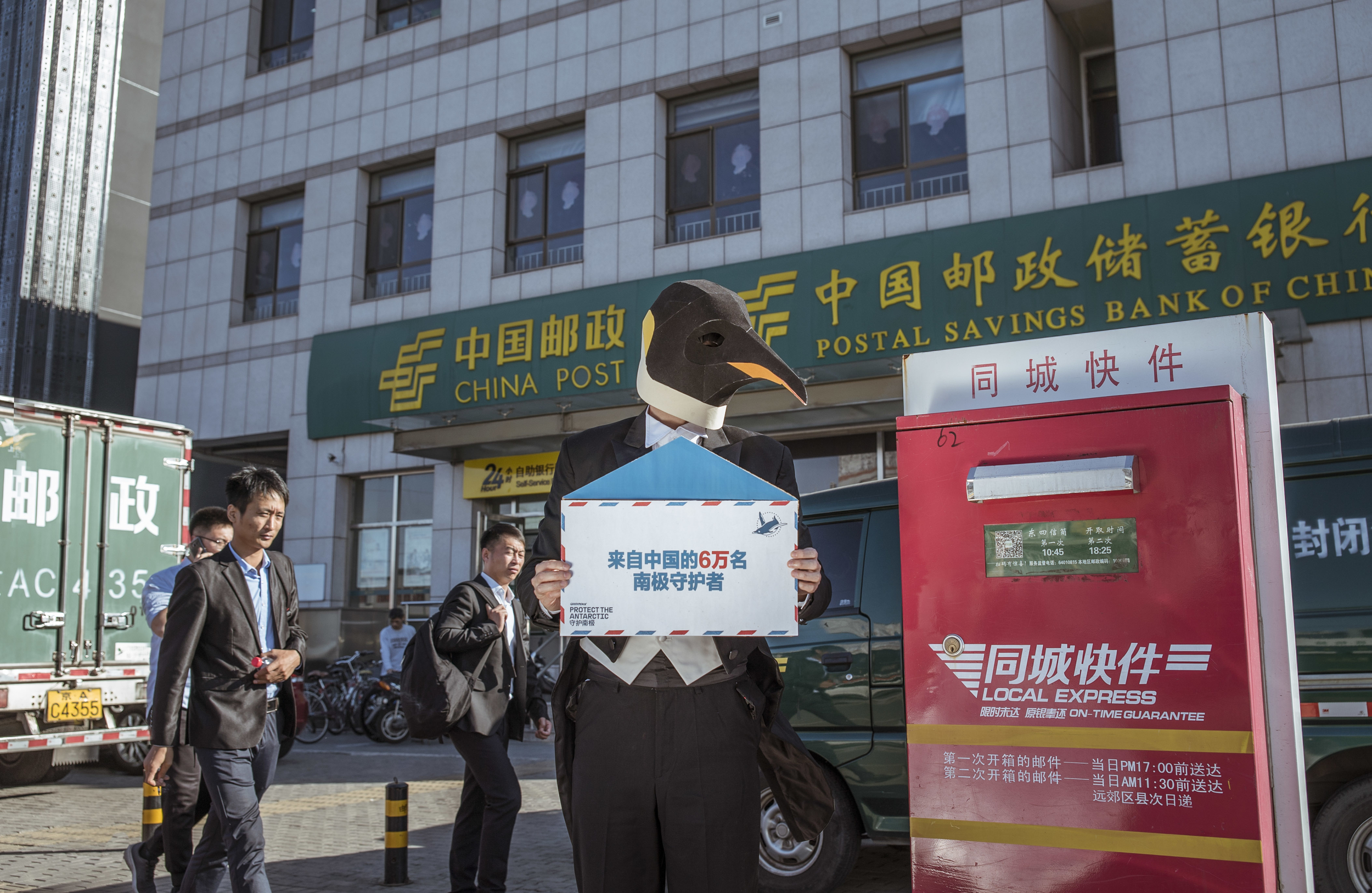BEIJING – A Greenpeace East Asia report ranking China’s top e-commerce platforms Alibaba, Pinduoduo, Vipshop, JD.com, ByteDance, and Kuaishou found Pinduoduo, which is now China’s second largest e-commerce platform, performing the worst of all companies in 2023.
Greenpeace East Asia Beijing-based project manager Tang Damin said:
“I’m worried these e-commerce platforms are becoming bottlenecks for progress. China’s e-commerce giants manage expansive platforms. We call them “platform companies”. And the standards they employ to manage their platforms dictate behavior from businesses and users alike. There’s been clear progress for some of these companies since the last time we did a formal analysis. But overall, China’s e-commerce giants still don’t do enough to leverage their platforms towards sustainability. This stagnation is most obvious for climate. But the impact on other environmental issues is also profound. Pinduoduo in particular stands out, with no progress whatsoever over the years.”
Comparing e-commerce companies’ climate commitments, actual performances, and disclosure and auditing, as well as response to environmental risks for biodiversity, waste, and hazardous chemicals, the report found Alibaba had comparatively the best performance in 2023, followed by Vipshop, which has improved since a similar 2021 analysis; JD.com; ByteDance; Kuaishou; and finally Pinduoduo, which was also last place in 2021.
While five of the six companies – excluding Pinduoduo – have disclosed some progress on responding to climate change, only one of the six companies analyzed here – Alibaba – has a strategy to respond to climate change through engaging and enabling users and businesses on its platform.
Five of the companies – excluding Pinduoduo – have biodiversity-related protections in place to prevent illegal online trade of plant and animal species. Alibaba also actively responds to user searches of relevant keywords by showing pop-up alerts that educate users about environmental impacts related to the keywords. JD.com, ByteDance, and Kuaishou have reported taking measures to remove products sold by platform merchants that pose threats to biodiversity, including illegal wildlife products and hunting tools that may be used for capturing wildlife. But as of late August 2023, researchers could still find prohibited items such as Tridacna products, Hexazinone, bird traps, electric earthworm harvesters, and other tools used for illegal hunting and fishing, including on Kuaishou and Douyin, a subsidiary of ByteDance.
Three companies had strategies on waste management – Alibaba, JD.com, and Vipshop.
Researchers found no strategy or action on climate, biodiversity, waste, or chemical action from Pinduoduo, which ultimately ended up having a negative score, based on the evaluation’s rubric.
Many Chinese e-commerce companies now also have overseas branches, such as Temu, which is owned by PDD Holdings, the same parent company as Pinduoduo. TikTok is owned by ByteDance.
Tang said:
“As Chinese e-commerce giants expand internationally, their economic and environmental impact grows. With different regulations in different countries, it is crucial that China’s e-commerce companies have strategies on how to manage their global climate and environmental footprints. This is likely to impact their image and even the global image of Chinese companies as a whole.”
Greenpeace East Asia’s Beijing office calls for e-commerce corporations to set up comprehensive climate goals as soon as possible, outlining an emissions reduction path and timeline for the entire value chain including scope 1, 2, and 3 emissions in keeping with the target to limit global temperature rise within 1.5° C. Setting up clear cut renewable energy targets rather than obscure “clean energy” goals is key, as is setting goals for key performance indicators such as proportion of zero-emission orders and zero-emissions transportation methods, as well as goals for engagement with sellers and consumers and strengthening environmental information disclosure.
In addition to climate change, the e-commerce industry’s impact on biodiversity, waste, and hazardous chemicals requires close attention and clear policies. Establishing environmental performance assessment mechanisms for merchants and providing consumers with green options not only in product selection but also modes of transportation and packaging is one way that these platform companies can leverage their networks to catalyze environmental protection in China.
ENDS
Read an English briefing of the report contents here.
Read the full report in Mandarin Chinese here.
For media enquiries please contact:
Qilin Liu, Greenpeace East Asia, Beijing, ([email protected])
Greenpeace International Press Desk, [email protected], +31 20 718 2470 (24 hours)



